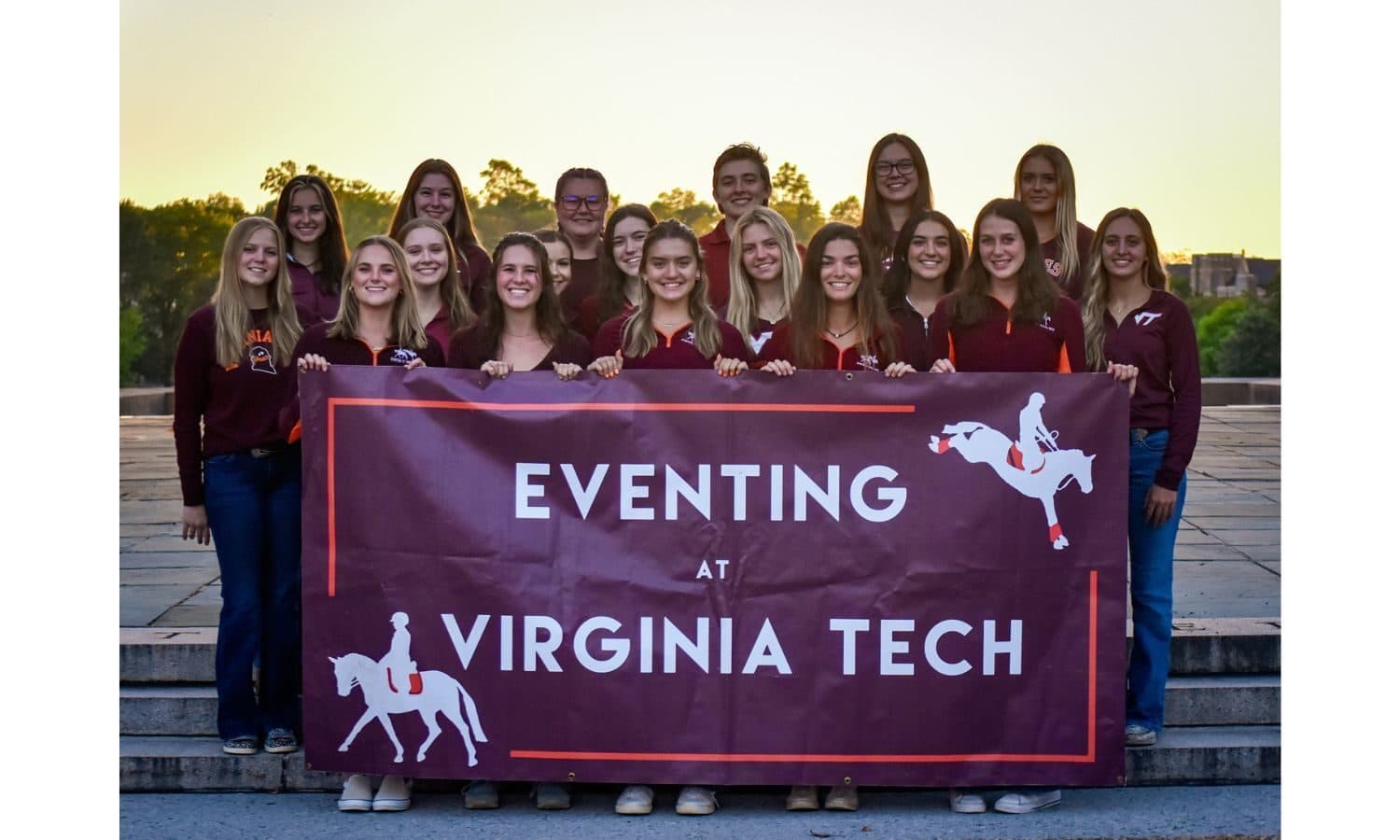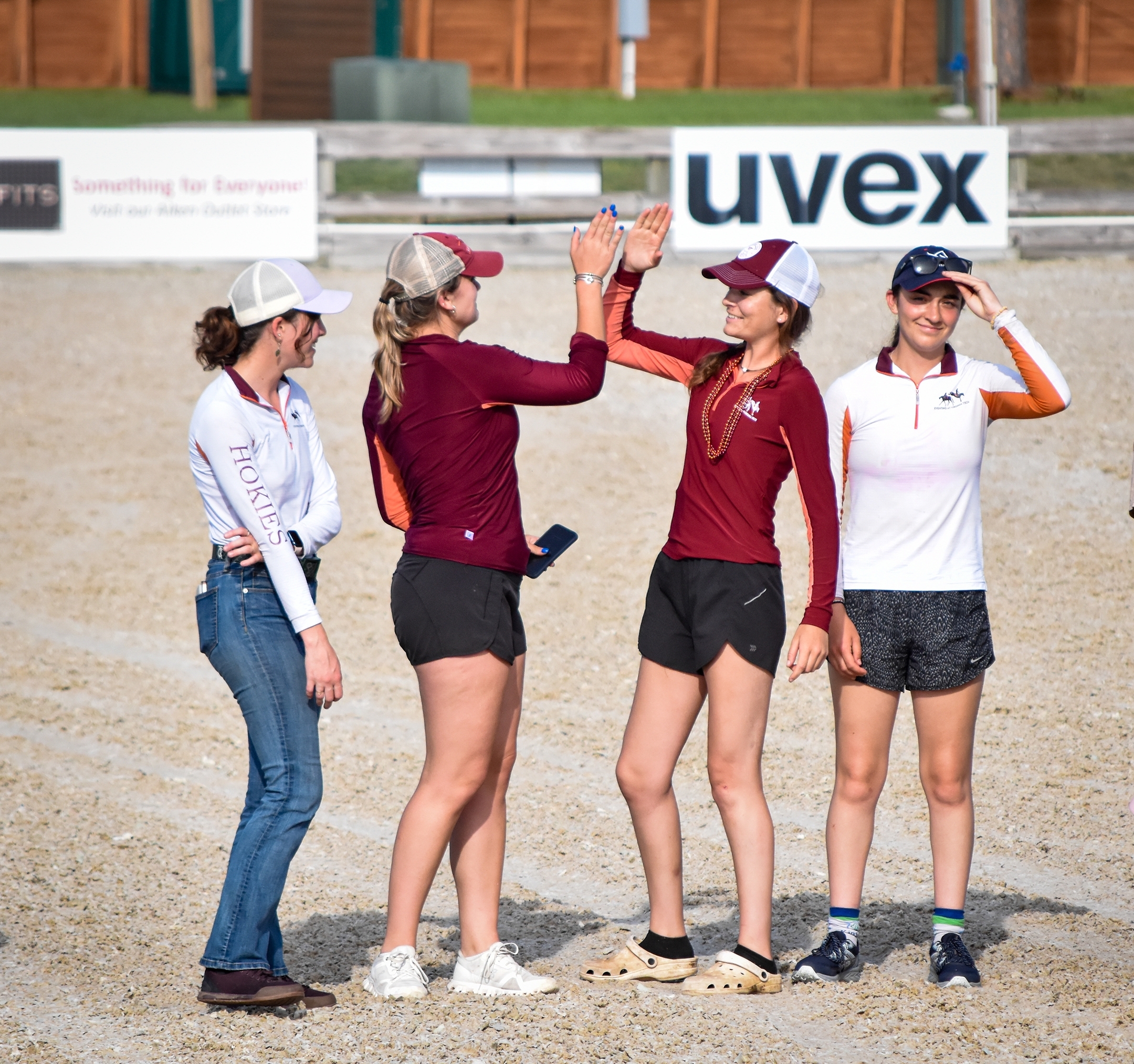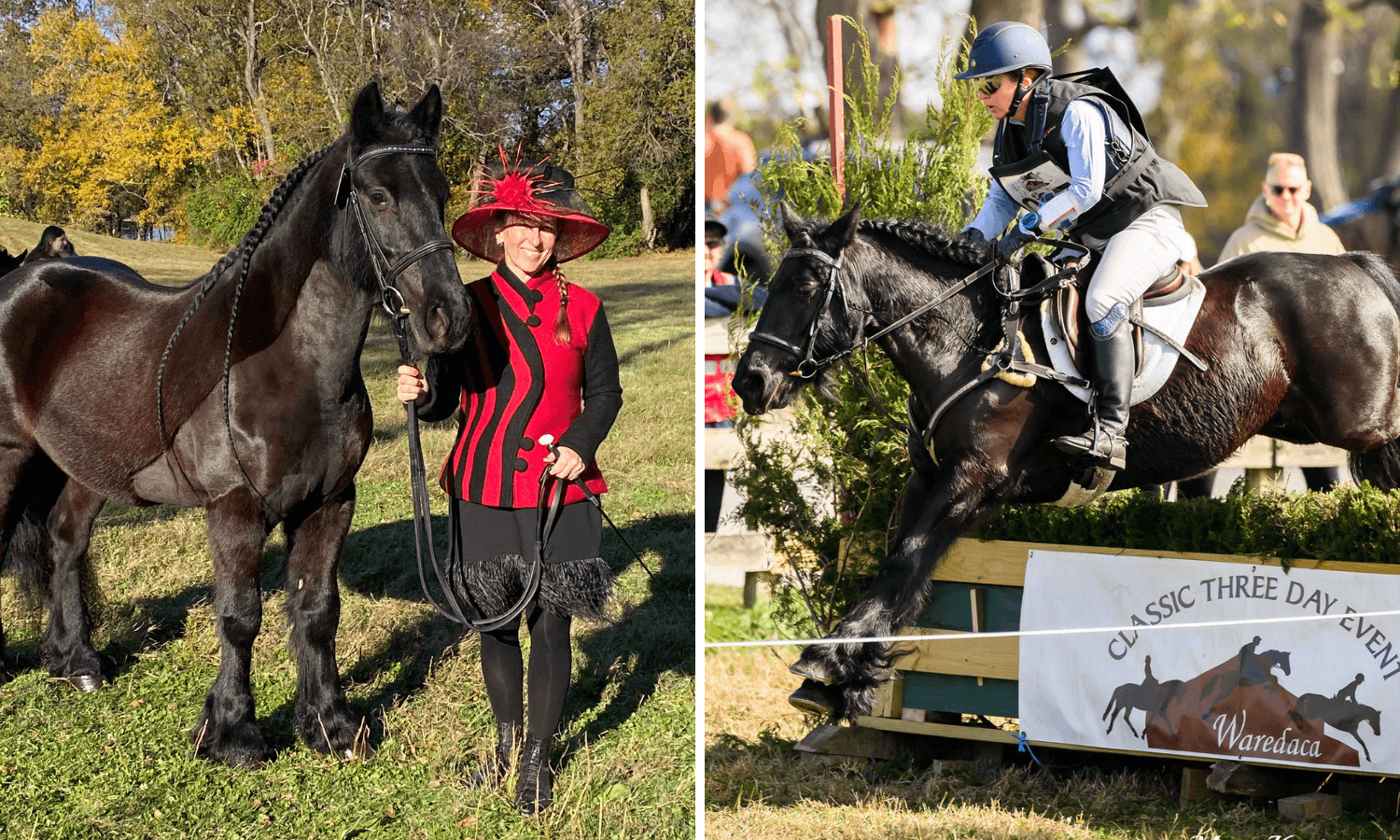Meet the Small but Mighty Virginia Tech Intercollegiate Eventing Team

Last fall while competing at the Virginia Horse Center Eventing Fall Horse Trials, Mandolin Whitten and her Virginia Tech teammates won the intercollegiate challenge and started to get some exciting ideas.
It had been nearly three years since the school had fielded a team at the USEA Intercollegiate Eventing Championship, and this time, they had enough riders to form a team and a half.
With targeted events and a group of about 20 registered USEA members plus many supporting team members, Virginia Tech’s riders competed together, including at Southern Pines (Raeford, North Carolina) and Stable View (Aiken, South Carolina) this spring, winning intercollegiate challenges at both.
That momentum brought them to the USEA Intercollegiate Championship in May at Stable View where they finished on the podium in third.
“It was incredibly rewarding,” said Whitten. “Back in September we had the idea that we could bring a good amount of people, and we knew the horses we wanted on our A team. It was exciting to bring that same group all the way to the champs in May. I feel like it really showed how much work that people in our club are willing to put into everything—the riding as well as the team spirit. We had club meetings and socials around building decorations, and everyone was just so excited for each other. Even though we couldn’t have everyone there, there was so much excitement from home, which is just so fun.”
Whitten, who graduated this spring with a degree in animal sciences, joined the small club in 2020. This year she served as vice president and social chair, and she’s also served as treasurer.
While Virginia Tech, which is located in Blacksburg, has robust Intercollegiate Horse Shows Association (IHSA) and Intercollegiate Dressage Association (IDA) teams, the eventing team is a self-funded club, she explained.
But during her collegiate career, Whitten says the club has grown in leaps and bounds.
“As we moved up, we probably doubled the size of the club and brought on a coach, Mark Combs, and made a lot of big changes. We’ve had a lot more involvement of people being able to ride, but also unmounted activities. It’s definitely open for everyone,” she said.
“We have a great group of riders that truly care about their horses. We’re not a big money club; we’re completely student-run and not funded by the school. It’s as much work as we put into it that we get out of it. We’re mostly on self-made horses, and we’ve got people all the way from Colorado and Connecticut and Aiken. In the last year, we’ve definitely grown the most.”

Whitten said the club has attracted riders from all walks of life. “Because the hunter and dressage teams at Tech are a little expensive and have a lot of commitments, we were able to bring in people who didn’t want to be riding all the time or didn’t have the ability to,” she said. “For people that don’t want to ride, they pay a small amount, and otherwise just have to do a handful of volunteer hours at events around us. It’s very cost-friendly for a college student. We have lots of people who’ve done hunters or ride in a local lesson program and just want to be around horse people.”
Whitten said the incoming president, Rose Schild, has plans to make the team a club sport to be able to get some funding.
The team was able to take monthly lessons from Combs this season, which was a huge step up, according to Whitten. Most of the team members who compete regularly board at Paris Mountain Stables, a 15-minute drive from campus, which she said has also been helpful.
“This year we really focused on getting everyone at the same barn as much as we could,” she said. “I felt like we were really able to build up some team spirit and camaraderie. We were able to ride together and hold team lessons once a month, which was exciting. People trailed together. Everyone was just in it to help each other, which is so fun. Everyone’s extremely inclusive and just nice. It’s just a really good group of people. We’re small but mighty for sure.”
Whitten has started a job as assistant trainer at Gabby Dickerson Eventing in Charlottesville, and she’s grateful for her time on the Virginia Tech Eventing Team. She already has plans to compete at Championships as an alumni.
“This last senior year at Championships—it was so fun to have a full team there and rewarding to have everyone working it off. I really wanted to do it all over again once it was over! The team was definitely the highlight of my college career,” she said.
About the USEA Intercollegiate Eventing Program
The USEA Intercollegiate Eventing Program was established in 2014 to provide a framework within which eventing teams and individual competitors could flourish at universities and colleges across the country. The USEA offers a discount of $25 on annual USEA memberships for current students at universities and colleges registered as Affiliates with the USEA. Many events across the country offer Intercollegiate Team Challenges where collegiate eventers can compete individually or on teams with their fellow students. In Intercollegiate Team Challenges, each rider’s score is multiplied by a coefficient appropriate for their level to account for differences in level difficulty, and then the individual scores are added together to determine the team score. The USEA Intercollegiate Eventing Championship is a capstone event for the program, which is held annually in the spring. The 2025 USEA Intercollegiate Eventing Championship will be held at Stable View in Aiken, South Carolina, on May 3-4. Click here to learn more about the Intercollegiate Eventing Program.
The USEA would like to thank Bates Saddles, Horse & Country, Kerrits, Nunn Finer, Sidelines Magazine, U.S. Equestrian, WeRideTogether, and World Equestrian Brands for sponsoring the USEA Intercollegiate Eventing Program.















